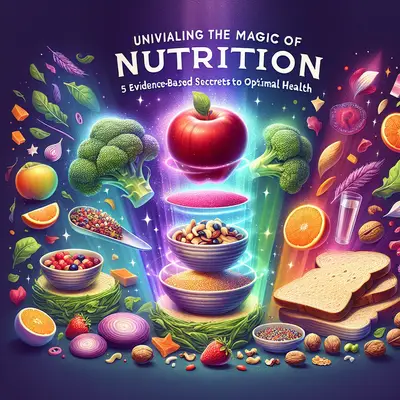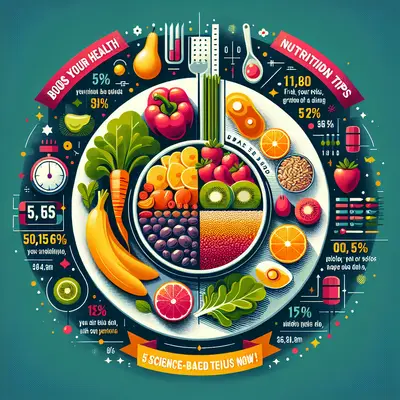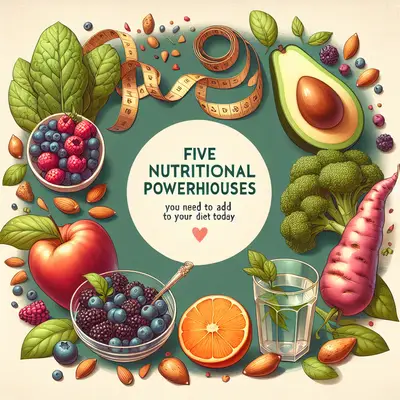Essential Nutritional Element 1: Protein
Protein is a vital nutrient required for the growth, repair, and maintenance of tissues in the body. A recent study in the Journal of Nutrition revealed that a higher protein diet can lead to improved muscle function and overall health [1]. Protein sources like lean meats, fish, eggs, legumes, and nuts should be included in daily meals for optimal health benefits.
Essential Nutritional Element 2: Fiber
Fiber is the unsung hero of nutrition. It aids digestion, promotes feelings of fullness, and helps in maintaining a healthy weight. A report in the Journal of Cholesterol highlighted the role of dietary fiber in reducing cholesterol levels and preventing heart disease [2]. Foods rich in fiber include fruits, vegetables, whole grains, and legumes.
Essential Nutritional Element 3: Healthy Fats
Contrary to popular belief, not all fats are harmful. Monounsaturated and polyunsaturated fats, found in foods like avocados, fish, nuts, and seeds, are beneficial for heart health. According to a study in the Journal of the American Heart Association, replacing saturated fats with these healthier fats can lower the risk of heart disease [3].
Essential Nutritional Element 4: Vitamins and Minerals
Vitamins and minerals are vital for various bodily functions, including immune function, energy production, and bone health. A balanced diet rich in fruits, vegetables, lean meats, and whole grains can provide most of these essential nutrients. However, certain populations may need additional supplementation, as suggested in a report from the National Institutes of Health [4].
Essential Nutritional Element 5: Hydration
Hydration is often overlooked in nutrition discussions, but it is essential for health. Water aids digestion, nutrient absorption, and detoxification. The European Journal of Nutrition reported that even mild dehydration can impact mood, concentration, and physical performance [5]. Thus, it's crucial to stay adequately hydrated throughout the day.
Conclusion
Understanding these fundamental nutritional elements can empower you to make informed dietary choices. Remember, the key to optimal health is a balanced and varied diet, coupled with regular exercise. Consult with a healthcare professional or a nutritionist for personalized dietary advice.
Sources:
[1] Pasiakos, S. M., et al. (2015). Protein and healthy aging. The American Journal of Clinical Nutrition, 101(6), 1339S-1345S.
[2] Threapleton, D. E., et al. (2013). Dietary fibre intake and risk of cardiovascular disease: systematic review and meta-analysis. BMJ, 347, f6879.
[3] Li, Y., et al. (2015). Saturated Fats Compared With Unsaturated Fats and Sources of Carbohydrates in Relation to Risk of Coronary Heart Disease. Journal of the American College of Cardiology, 66(14), 1538-1548.
[4] NIH. (2021). Dietary Supplement Fact Sheets. National Institutes of Health Office of Dietary Supplements.
[5] Pross, N., et al. (2014). Effects of dehydration on brain functioning: A life-span perspective. Annals of Nutrition and Metabolism, 64(suppl 2), 47-53.



